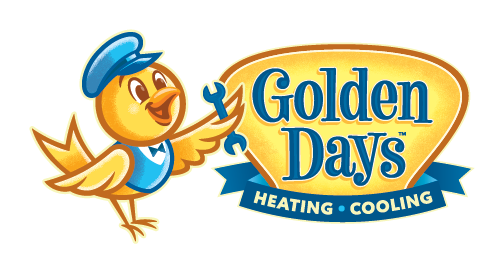FAQs
Golden Days Heating & Cooling
Have an HVAC-related question? Golden Days Heating & Cooling has the answer. Check out these FAQs and give us a call today for more information!
-
What are signs my HVAC system needs to be repaired or replaced?
An appropriately sized HVAC system should maintain the home's temperature within about a degree of the thermostat setting on a typical day for that season. Extreme weather conditions may exceed its design capabilities. Ideally, your HVAC system should run consistently, becoming just background noise in your daily routine. If it starts to feel or sound different than usual, it’s a good idea to contact your HVAC service provider for advice, similar to how you would check on a vehicle that’s acting up. If your system struggles to reach the set temperature, investing in a professional evaluation could be worthwhile.
-
How often should I have my HVAC system serviced?
This can be a challenging question to answer, as it largely depends on the homeowner's preferences. Regular maintenance offers two key benefits: it helps keep the system running at peak efficiency and allows for early detection of potential issues. Without maintenance, you'll only realize repairs are needed when the system fails to heat or cool the home, often during extreme weather conditions. This isn't just a case of "Murphy's Law"; it happens because systems must work harder during peak demand, cycling on and off frequently, which puts extra strain on weakened or failing components. Routine maintenance aims to catch these issues before they lead to downtime, ensuring your daily life is less disrupted. While some homeowners prefer maintenance checks twice a year, we suggest at least once every couple of years. The longer you wait between services, the more you risk leaving your peace of mind to chance. The system may operate well until it suddenly doesn’t.
-
What is the average lifespan of an HVAC system?
The typical "useful life" of a furnace, air conditioner, or heat pump is around 12 to 17 years. While it's possible for your system to last beyond this range, as it ages, finding replacement parts may become challenging, and you'll likely start facing increasing repair costs.
-
How can I improve my HVAC system's energy efficiency?
The most significant factor affecting the efficiency of an HVAC system that homeowners can control is regularly changing the air filter. Different filters have varying lifespans, and this isn’t a one-size-fits-all situation. For example, if you have a large family, shedding pets, or live near farm fields or areas with high pollen counts, your filter may clog up faster than expected.
Air conditioning units can accumulate dirt, dust, and debris on the coils, which reduces their ability to transfer heat effectively. If the coils aren’t too dirty, homeowners can gently rinse the outdoor unit with a hose, taking care not to use too much pressure to avoid bending the fins. However, if the coils are heavily clogged, professional cleaning may be required.
-
Before calling for service on a malfunctioning HVAC system, what should I look for first?
The most common simple fixes for HVAC issues involve dirty filters and clogged drains. A clogged drain may or may not disrupt system operation, depending on the sensors in place. The system might continue to function but could show signs of water pooling near the unit. A dirty filter can cause a furnace to overheat or lead to ice buildup on an air conditioner's coils due to inadequate airflow. If you ask family or friends for advice, they might also suggest changing the thermostat batteries. While this is less common than it was 20 years ago, it’s still worth checking.
If you plan to reset the power to the HVAC system in hopes of restoring functionality, be aware that doing so may erase any error codes displayed, which could assist a technician in diagnosing the problem. If you do call for service, please refrain from resetting the system again until a technician has had the chance to check for error codes. While newer systems are improving in their ability to retain error codes after a reset, most systems in use today do not have this capability, and resetting the power may complicate diagnostics when you need them most.



Share On: